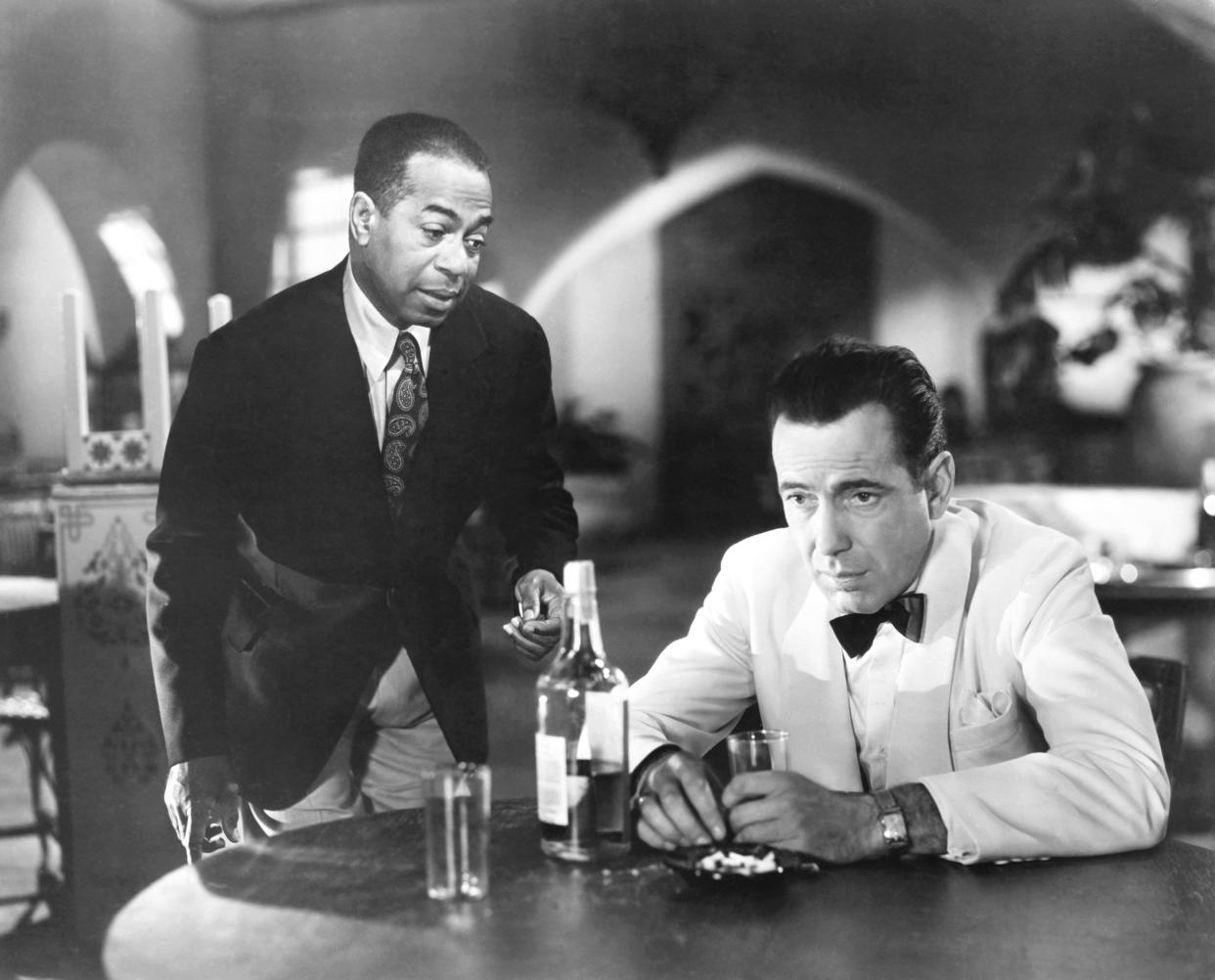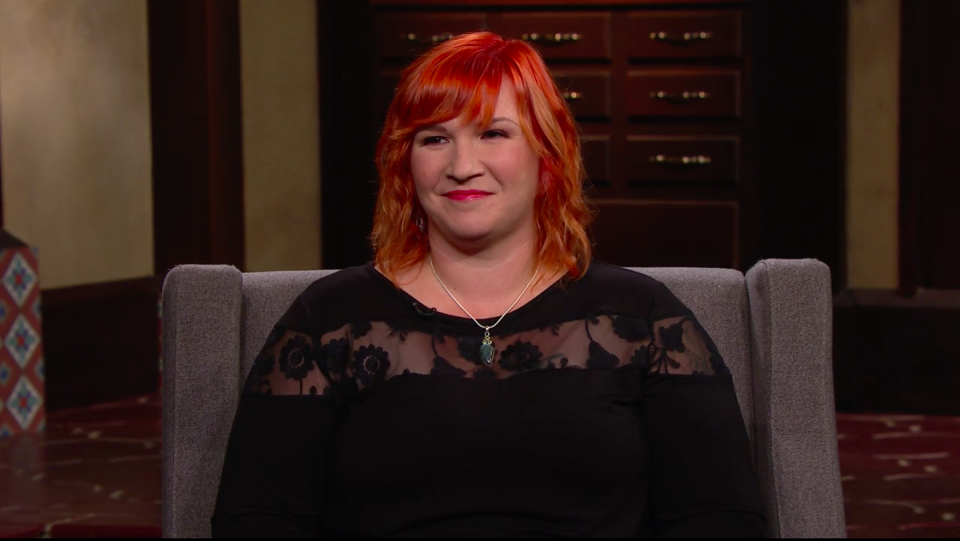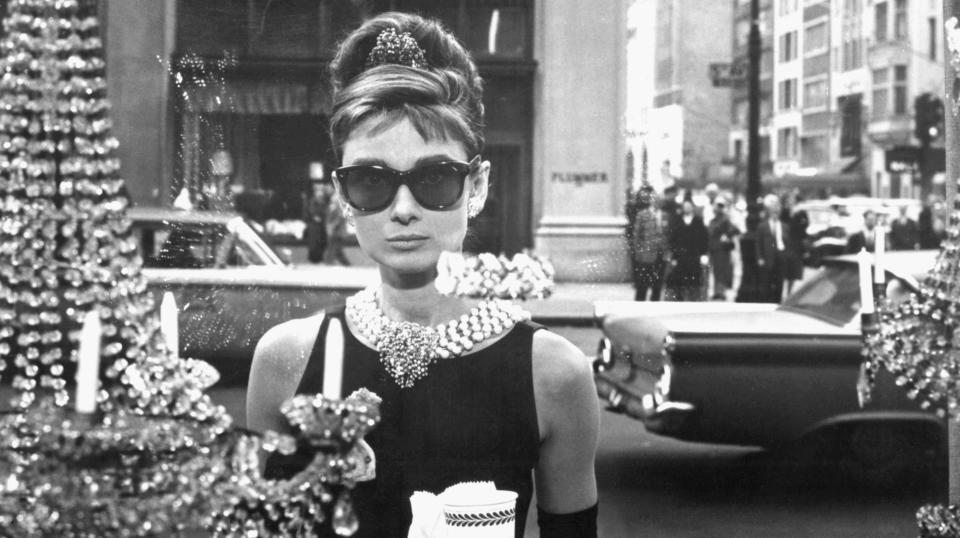How classic movies like 'Casablanca' helped one Iraq veteran heal

When Jenny Pacanowski was growing up, she and her father, a Marine, loved to watch old movies together. They’d put on King Kong and little Jenny would try to imitate Fay Wray’s scream. Or they would watch Cool Hand Luke and snack on hard-boiled eggs. For Pacanowski, these films were a way to bond with her father, an outlet to “express our emotions without the weirdness … because he was a Marine,” she told Yahoo Entertainment. Years later, those same films would help her reconnect with her own emotions after a tour of duty in Iraq. On Sunday, Pacanowski will appear on Turner Classic Movies as part of the channel’s Veterans Day weekend programming: eight classic films, each selected and introduced by a military veteran. In honor of the holiday, Yahoo Entertainment asked Pacanowski to share her story of service and resilience — and how classic movies helped her win the battle against PTSD.
Pacanowski was 23 when she joined the Army in 2003. At her father’s insistence, she’d tried college, but the military had always been her dream. Now, saddled with student debt, she decided to join up and become a medic. Her plan was to continue studying while she served, take part in Army life (she had her eye on the boxing team), and eventually use her experience to become a nurse in the civilian world.
But Operation Iraqi Freedom had other plans for Pacanowski. In 2004, nine months after she enlisted, the new recruit found herself doing medical support for convoys, driving an ambulance through some of Iraq’s most volatile war zones. “It was the closest thing to a front line in Iraq, except for the people that were like kicking down doors,” she explained. “I wasn’t on a base. Because I’m a woman, people make assumptions about what my service looked like. But no, I was boots on the ground with the guys. I was like a first responder — that’s the best way to see it.”

After almost a year (“It makes me feel better to say 11 and a half months,” she admitted), Pacanowski came home. Immediately, she found herself in a legal battle with the Army, which had breached her contract by refusing to pay her student loans. On top of that, she began experiencing the first symptoms of PTSD. “When I came home it was really difficult for me to drive because I would have flashbacks,” she said. “I’d be swerving for bombs, getting really angry and road-ragey because people weren’t following convoy etiquette. I was totally disconnected from the present moment.” She fell into depression and addiction, and had periods of homelessness.
During that “dark time,” one of Pacanowski’s few coping mechanisms was watching old movies. “They were very soothing to me,” she recalled. “I had panic disorder, I had an anxiety disorder, I couldn’t sleep, and at the time I was a drunk.” Films like Breakfast at Tiffany’s offered her a safe escape. “I wanted to be transported into somewhere lovely, and New York City in the ’50s is perfect,” she said with a laugh. She took comfort in how Audrey Hepburn and George Peppard ended up in each other’s arms, broken as their characters were. “I wanted people to be happy, really, at the end of the day,” she said. “Because I wanted to be happy. But I didn’t know how yet.”

Six years after returning from Iraq, she began to figure it out. Pacanowski got a service dog, a 145-pound bullmastiff that would comfort her during anxiety attacks and flashbacks. “That was like the beginning of the light,” she explained. She found a community of veterans who had similar experiences. Finally, she began to write her stories down, and started facilitating writing workshops to encourage other veterans to share their own.
It wasn’t just about finding happiness, though. Another gift that movies gave Pacanowski was the ability to feel her own feelings again. “Because of my military training, I was completely disconnected from my emotions,” she said. “So I could sit down, I could watch a movie, and I could cry and not feel shame or weakness. That’s what I would use Wuthering Heights for. And Casablanca, of course! Why does she not stay with Rick? That guy got through a concentration camp — he can figure out how to get over a broken heart!”
Casablanca is, in fact, the movie that Pacanowski will be introducing on Sunday. And when it airs, she’ll be watching with her father. “He’s so excited that I’m going to be on TCM,” she said, “because it was our thing.”
Learn more about TCM’s Veteran’s Day programming on its website. For information about Jenny Pacanowski’s writing workshops and veterans’ programs, visit the One Fight Foundation or check the websites for her local classes in Pennsylvania’s Lehigh Valley.
Read more from Yahoo Entertainment:


